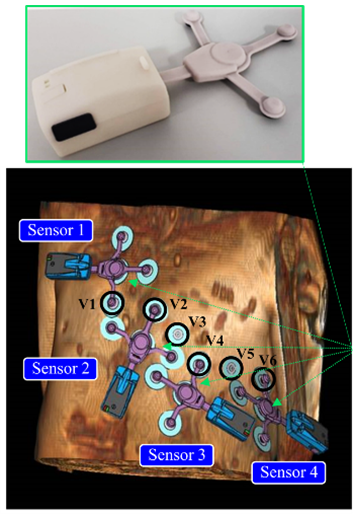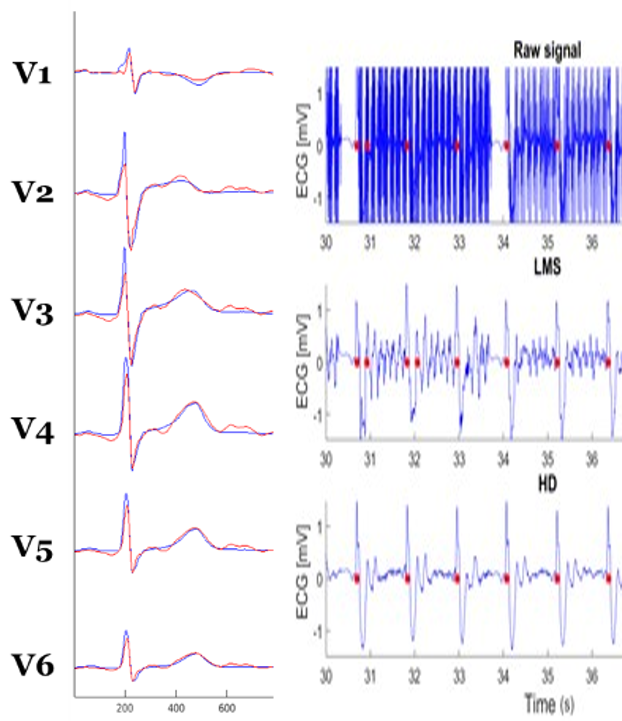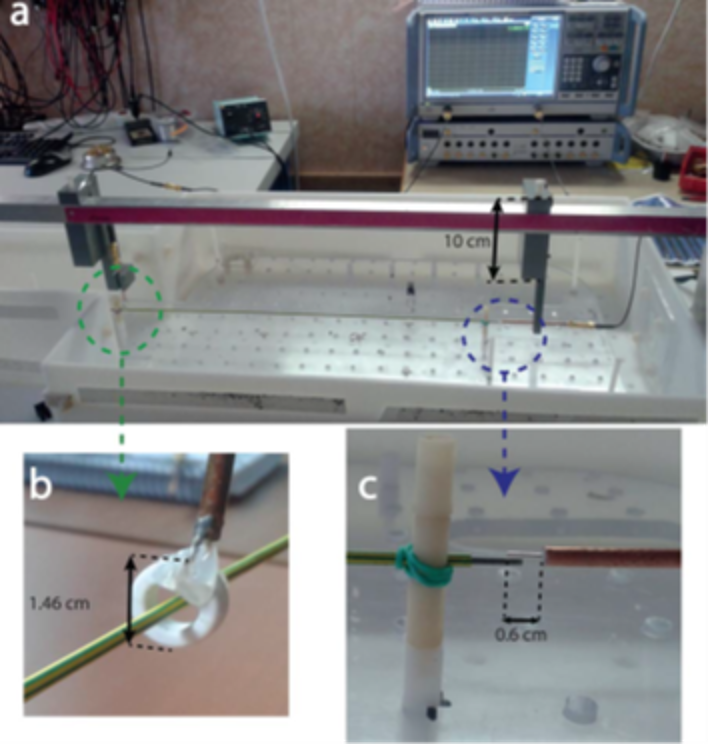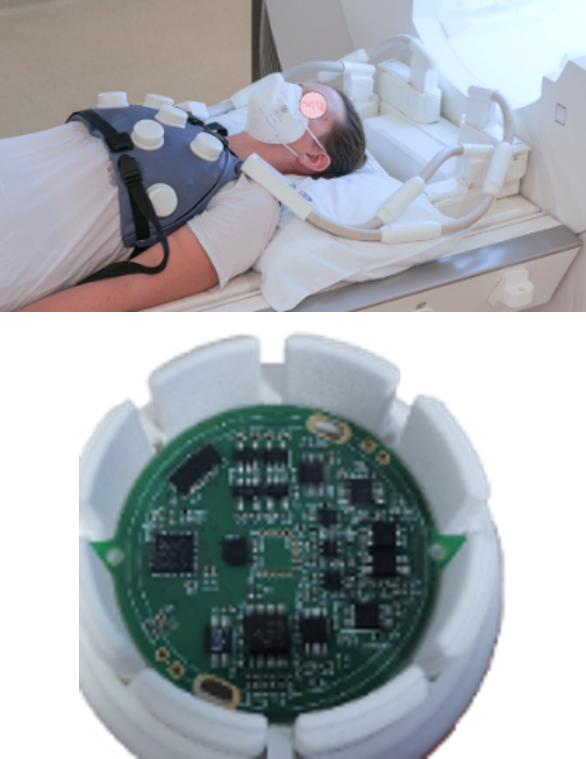The laboratory is developing specific sensors to acquire real-time information on patient movement during MRI examinations. The difficulty lies in the complex electromagnetic environment of MRI. Major adaptations are required to obtain MRI-compatible sensors. We have mainly developed sensors for electrophysiological and respiratory signals.
We are also developing experimental measurement and numerical simulation methods to control the risks associated with the presence of medical devices in MRI. These risks include attraction, heating, vibration and device malfunction.

Device for measuring the transfer function of a medical device in MRI

Dedicated 48-channel MRI coil designed by our partners in Vienna (top) and integrated motion sensor (bottom)

MRI-compatible ECG sensor developed with Schiller

12-lead ECG reconstructed from 4 MRI-compatible sensors (left) and MRI ECG denoising (right)
Collaborators
Schiller Médical (Wissembourg), Healtis (Nancy, spin-off of IADI), Epsidy (Nancy, spin-off of IADI), University of Vienna (Austria)
Funding
- SPIN-EST project (Région Grand-Est)
- BraCoil project (ANR PRCI France-Austria, 2017-22)
Selected papers
- Reconstruction of the 12-lead ECG using a novel MR-compatible ECG sensor network. Dos Reis JE, Soullié P, Oster J, Palmero Soler E, Petitmangin G, Felblinger J, Odille F. Magn Reson Med. 2019 Nov;82(5):1929-1945. doi: 10.1002/mrm.27854. Epub 2019 Jun 14.
- Electrocardiogram Acquisition During Remote Magnetic Catheter Navigation. Dos Reis JE, Soullié P, Battaglia A, Petitmangin G, Hoyland P, Josseaume L, de Chillou C, Odille F, Felblinger J. Ann Biomed Eng. 2019 Apr;47(4):1141-1152. doi: 10.1007/s10439-019-02214-3. Epub 2019 Jan 30.
- Coupled transfer function model for the evaluation of implanted cables safety in MRI. Kabil J, Felblinger J, Vuissoz PA, Missoffe A. Magn Reson Med. 2020 Aug;84(2):991-999. doi: 10.1002/mrm.28146. Epub 2020 Jan 20.
- Experimental setup for transfer function measurement to assess RF heating of medical leads in MRI: Validation in the case of a single wire. Missoffe A, Aissani S. Magn Reson Med. 2018 Mar;79(3):1766-1772. doi: 10.1002/mrm.26773. Epub 2017 Jun 6.